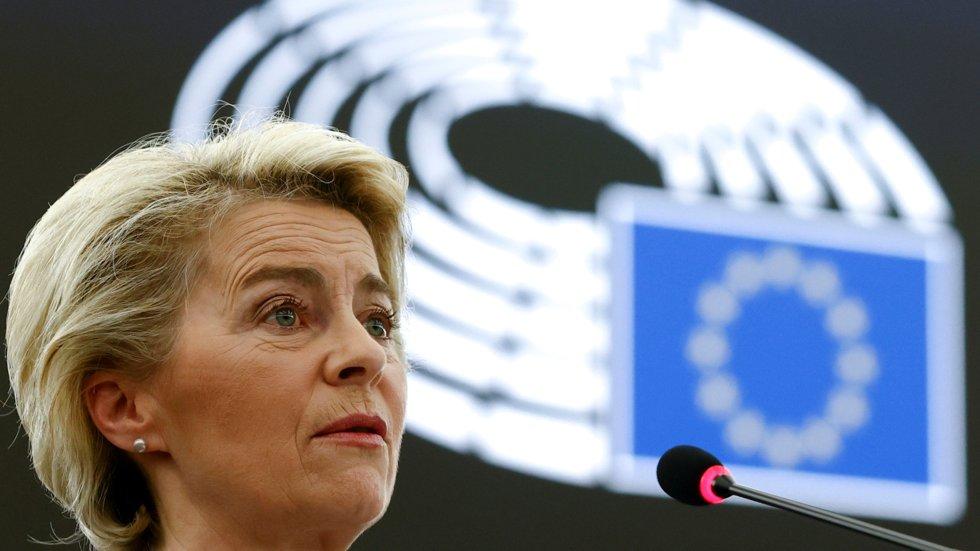The European Commission has initiated a number of lawsuits against stubborn members in the East to end violations of what are perceived as the EU’s common values.
Some victories have been won, but the governments of Warsaw and Budapest stand their ground and do not take action from the EU without further ado. What is in the pot is the fundamental principle that EU laws take precedence over nationally adopted legislation.
– We can have an infectious effect, where a number of EU countries question this scheme in more or less aggressive ways. If we let this continue, it will obviously be a threat to the union itself, says Justice Commissioner Didier Reynders.
Controversial law
Reynders’ warning comes at a time when Hungarian Prime Minister Viktor Orbán has reacted angrily to the European Commission’s legal action to have his so-called anti-pedophilia law overturned.
“If the EU wants to interfere in issues and laws that are enshrined in a country’s constitution, it could threaten the very foundations of the EU,” warns Orbán’s chief of staff Gergely Gulyas.
In Poland, Prime Minister Mateusz Morawiecki has rejected a ruling by the European Court of Justice which states that a key part of a recently adopted reform of the judiciary is contrary to EU law.
– I will not allow Poland to be treated in a special and less favorable way than others. It is discriminatory. The commission has exceeded its powers, says the prime minister.
He claims that there is no place in the EU’s agreement that the authority to reform a judiciary has been transferred to the EU level.
Strong EU response
One of the main tasks of the European Commission is to ensure that the member states comply with the treaties that have been adopted at the political level. In Brussels, therefore, there was a strong reaction to the Polish statements. The Commission made it clear that all its power and authority will be used to ensure that Poland accepts the primacy of EU law.
Poland has also been criticized for its LGBTQ legislation, and the Commission has reported this case to the EU judiciary.
A new front was opened last Thursday when the commission announced that Hungary would be summoned to want to tighten the rules further for migrants seeking asylum. Hungary refers to the corona father and says that asylum seekers must register at a Hungarian embassy outside the country before arrival, a requirement the commission describes as illegal.
Migrants
Orbán’s spokesman for international affairs, Zoltan Kovacs, says in a twitter message that Hungary can stay with the migrants if they are first allowed into the country and can complete their application there.
– We do not want Hungary to become an immigrant country, he says.
Both Hungary and Poland are ruled by right-wing, social-conservative governments that are also experiencing strong demonstrations at home.
Hungary’s so-called anti-pedophilia law came into force last week, despite warnings from Brussels. Among other things, the law prohibits people under the age of 18 from being informed about homosexuality and gender reassignment.
The head of the European Commission, Ursula von der Leyen, quickly said that the EU would force Hungary to revoke or modify this law.
“The EU will never allow anyone in society to be stigmatized because of who they love, age, ethnicity, political opinions and beliefs,” von der Leyen said in a speech in the European Parliament.
LGBT-free area
In Poland, around 100 towns and villages have adopted an anti-LGBT resolution, a text they describe as a charter of family rights. This movement covers about a third of Polish territory and is mainly located in the east and southeast, traditionally strongly Catholic areas.
Another issue that has led to confrontation between the Commission and Poland is the reform of the judiciary, in particular paragraphs that allow for political control over judges. A disciplinary body shall assess judges and possibly remove their legal protection if they do not judge as the government wishes.
The government claims the reforms are necessary to tackle corruption and clean up old communist structures.
But the commission claims the reforms undermine the independence of the judiciary, and Poland could face economic consequences after the European Court of Justice ruled on Thursday that the country had not fulfilled its EU obligations.
– .


